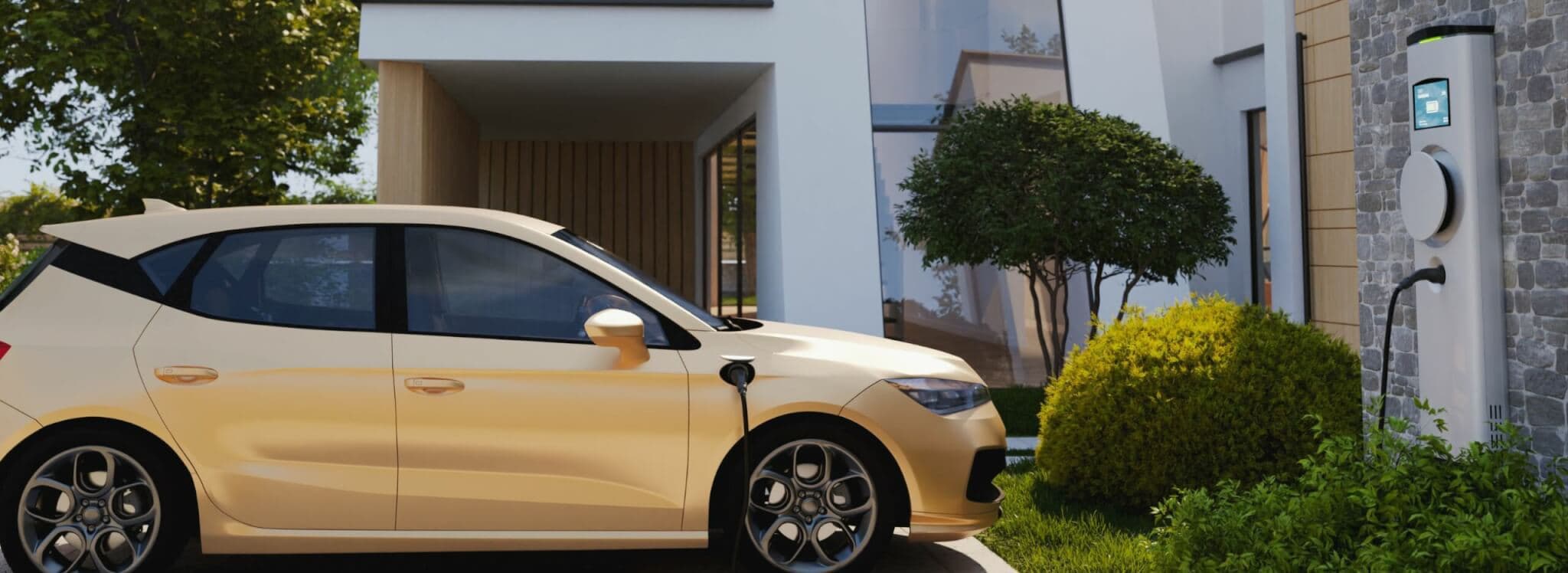How the Inflation Reduction Act is Helping Homeowners Go Solar

On August 16, 2022, President Biden signed the Inflation Reduction Act of 2022 into law. This act includes both new and revised tax incentives, like a solar tax credit, for clean energy projects, which have been growing significantly in popularity in recent years.
Here are the most important things to know about the act — and how you might be able to leverage it to lower your tax bill.
The Basics of Solar Tax and Clean Energy Incentives
A tax credit is a dollar-for-dollar reduction in your federal income taxes. In order to be eligible for the solar tax credit, you have to meet some basic criteria:
- Your system must be installed and deemed operational by a city inspector in any tax year from 2022–2032.
- Your project must fall under the umbrella of solar, geothermal, or fuel cell energy.
The solar credit amount under Section 25D, previously known as the Residential Clean Energy Credit, is dependent on the year in which the system installation was completed. It has increased from 26% to 30% for installations completed after December 31, 2021, and this credit will continue until December 31, 2032. In 2033, the credit will drop back down to 26%, then to 22% in 2034, and is set to be eliminated beginning in 2035.
If you’ve purchased and moved into a new home with a solar system and own the system outright, you’re eligible for the inflation tax credit the year you moved into the house. However, if you’re leasing the system or purchasing it through a power purchase system (PPA), the company that owns the system is eligible for the ITC instead.
To claim the credit, you’ll need to file IRS Form 5695 along with your tax return. On Part I, you’ll calculate the credit, and input the result on your 1040.
Why Homeowners Are Going Solar Now More Than Ever
In the second quarter of 2022, residential solar set its fifth consecutive quarterly growth record. Why are more homeowners than ever investing in solar? Industry experts point to a few reasons.
“There are two primary concerns driving growth: increasing electricity cost and decreasing grid reliability,” explains Matt Bramson, Elevation Executive Vice President of Marketing and Sales.
Bramson went on to explain that unless multiple batteries and associated load-handling equipment is installed, a battery cannot backup an entire home or even an HVAC system for long in a power outage. Additionally, the rate that utilities pay homeowners to buy back excess solar power is often so low that homeowners are finding it makes more financial sense to store that power in a battery during the day and consume it at night versus selling it back to the utility.
The rise in Electric Vehicles (EV) also plays a major factor in the purchase of batteries to allow for vehicles to charge overnight.
There’s one more often-overlooked factor driving solar purchases for homeowners: eliminating wasted energy.
“We like to remind homeowners that the cheapest and cleanest energy of all is that which you never consume,” said Bramson. “Most homes waste 10-20% of the energy they consume as a result of inadequate insulation, leaky HVAC ducts, and drafty doors and windows. Another 8-12% is wasted through suboptimal resident and appliance behavior — leaving lights and fans on, running wasteful appliances like small space heaters, and maintaining older appliances that lack energy efficiency. Solar providers like Elevation offer services that help eliminate home and resident energy inefficiency.”
Frequently Asked Questions About the Inflation Reduction Act
Do I qualify for the Inflation Reduction Act?
There are a couple of requirements you must meet in order to qualify for the Inflation Reduction Act. First, you must own the solar or battery system by purchasing it using cash, a solar loan, or a home equity investment, as you cannot use a lease or PPA financing to claim the tax credit. You’re also required to have an income tax liability, as this incentive was introduced to reduce it.
How long does a solar panel system take to install?
Most systems can be installed in a day or two, but you should factor in some extra time for the entire process, as you first need to be approved for financing and utilities, get the proper permits, etc.
How does the solar tax credit work?
In addition to meeting the stated criteria to qualify for the credit, you’ll need to file IRS Form 5695 along with your tax return to claim it. You’ll calculate the credit on Part 1 of the form, and input the result on your 1040.
In terms of financing, there are a handful of different ways to fund solar purchases — including designated solar loans that are widely available. However, they vary quite a bit in terms of fees, APRs, and timelines, so you’ll want to explore your different options. Home equity loans are also a popular choice, but since you’re taking out another loan on top of your mortgage, you’ll want to make sure you can handle additional monthly payments.
You can also access your home equity with a home equity line of credit (HELOC), which gives you flexibility in terms of amount and frequency of access. However, due to variable interest rates, monthly payments may fluctuate and be unpredictable, and your lender can freeze your HELOC at any time if your credit score drops too drastically.
Finally, a home equity investment (HEI) can give you access to your equity in cash relatively quickly in exchange for a share of your home’s future value. What separates a home equity investment from a home equity loan or line of credit is that there aren't any monthly payments. You can use the money for virtually anything you’d like. At the end of the effective period (or anytime before then), you buy out the investment with savings, a refinance, or the sale of your home.
With recent record highs in home equity and the revised tax credit, it might be the perfect time to make solar investments in your home.
Do you know how much equity is in your home today? Our free Home Equity Dashboard can help!
You should know
We do our best to make sure that the information in this post is as accurate as possible as of the date it is published, but things change quickly sometimes. Hometap does not endorse or monitor any linked websites. Individual situations differ, so consult your own finance, tax or legal professional to determine what makes sense for you.



